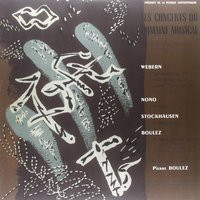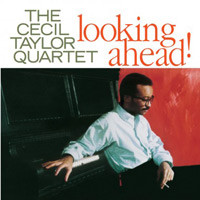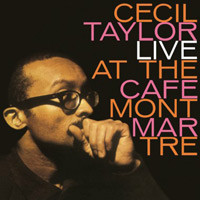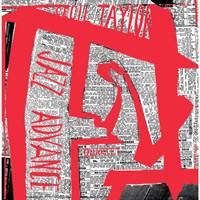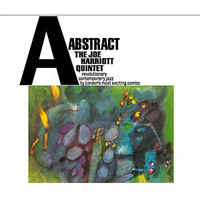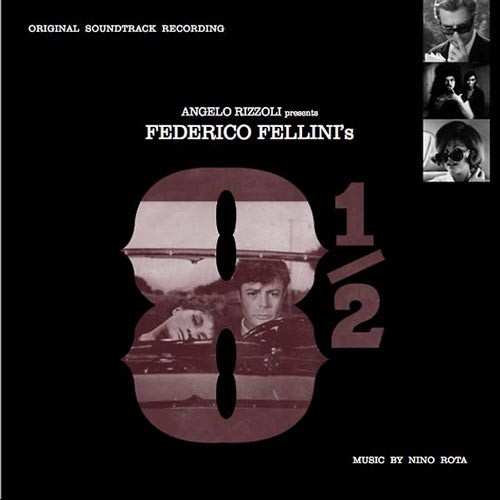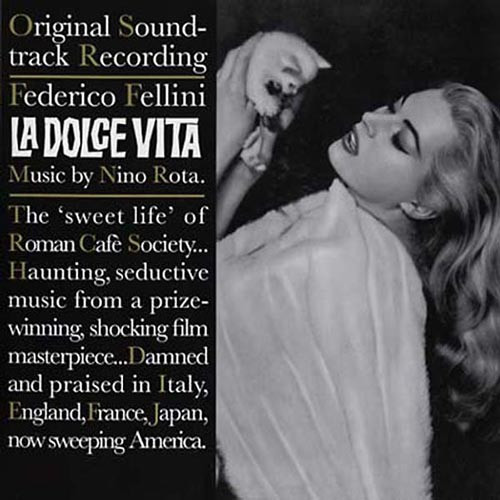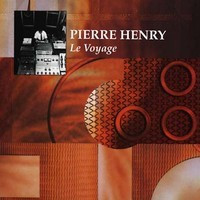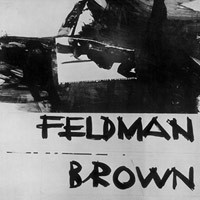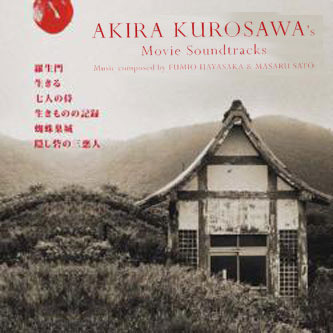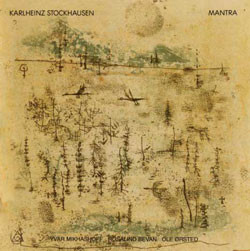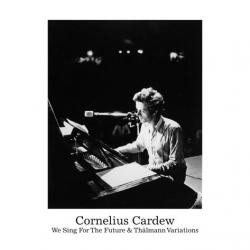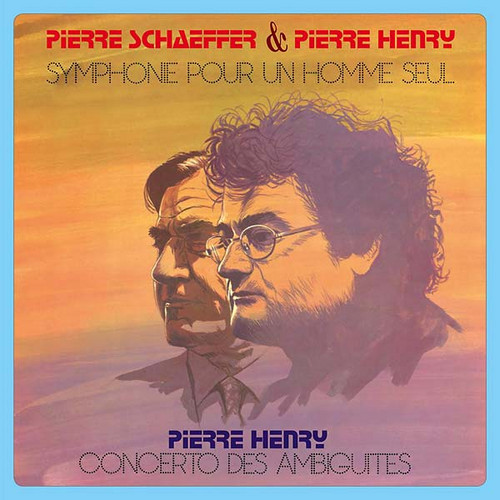★Doxy
Le Concerts du Domaine Musical 1956
Doxy presents a reissue of "Les Concerts du Domaine Musical", originally released by the French label Véga in 1956. Le Domaine Musical was a concert society established by Pierre Boulez in Paris, which was active from 1954 to 1973. Boulez intended to provide opportunities for new music, after a general musical migration from Germany and Austria to Paris in the wake of those countries' legacy of war-torn decades without music. Le Domaine Musical created an exciting milieu in which the best an…
Looking Ahead!
"One of Cecil Taylor's earliest recordings, Looking Ahead! (1959) does just that while still keeping several toes in the tradition. It's an amazing document of a talent fairly straining at the reins, a meteor about to burst onto the jazz scene and render it forever changed. Looking Ahead! is a vital recording from the nascence of one of the towering geniuses of modern music and belongs in any jazz fan's collection." --AllMusic
Live at the Cafe Montmartre
Jazz Advance is the debut album by pianist Cecil Taylor recorded for the Transition label on September 14, 1956. The album features performances by Taylor with Buell Neidlinger, Dennis Charles and Steve Lacy. "Though many did not understand his approach at the time, the passing years temper scathing criticism, and you can easily appreciate what he is accomplishing... With Jazz Advance, the revolution commenced, Taylor was setting the pace, and the improvised music world has never been the sam…
Jazz Advance
Jazz Advance is the debut album by pianist Cecil Taylor recorded for the Transition label on September 14, 1956. The album features performances by Taylor with Buell Neidlinger, Dennis Charles and Steve Lacy. "Though many did not understand his approach at the time, the passing years temper scathing criticism, and you can easily appreciate what he is accomplishing... With Jazz Advance, the revolution commenced, Taylor was setting the pace, and the improvised music world has never been the sam…
Abstract
"'Audiences now seem to be understanding what we're doing. We've stepped up the amount of free-form to about fifty percent, and all over the country we're getting better receptions for this kind of music than we get for conventional modern jazz.' Free-form tries, says Harriott, to add color to jazz: 'Of jazz's various components -- constant time signatures, a steady 4/4 tempo, themes, chord sequences, and so on -- we aim to retain at least one in each piece. But we may dispense with all t…
8 1/2 O.S.T.
Nino Rota enhances the dreamy proceedings of Fellini\'s 1963 masterpiece, with a music hall-like melange of jazz, classical, lounge, and circus music. Rota composed a glorious mix of operatic interludes, cabaret swing, polka romps, and organ combo ditties, often all within one number.
La Dolce Vita O.S.T.
On vinyl, it's the legendary score from the Fellini's equally legendary movie. The music by Nino Rota sometimes sounds quasi-liturgical, sometimes jazzy, and sometimes it rocks. Lurking beneath is the irreverence of tuba and accordions, and snatches of pop songs. The characters in Fellini's movie are forever in motion, and Rota provides the perfect music for their processions and parades.ÂÂ
Organized Sound: Luna Park Traveling Music Apocalypse
Another killer reissue on Doxy, equally desirable volume, which completes the documentation of Dockstader's organized sound works. "Traveling Music was originally composed as a monaural piece (Electronic Piece No. 8). It was, in effect, my Poeme Electronique, after Varese, and my first piece to be strictly organized with a few sound-materials (instead of throwing everything in and stirring briskly, as I'd done prior to this). When I got the use of a two-track…
Organized sound Drone Two fragment From Apocalypse
Seminal musique concrete recordings from the early 60s, first time available on vinyl (original has been out of print on LP for over a decade, originally published on his private 'Owl' imprint). Dockstader deserves shelf space next to Schaeffer, Henry, Stockhausen, Varése, etc. -- historically vital, minutely detailed experimental electronic music and tape composition. "My choice of the term 'Organized Sound' for my own work was, in part, a tribute to the 'Poéme' and to Varése. I…
Le Voyage
After being out of print for decades, Pierre Henry's 1962 Le Voyage is finally available again on vinyl. Based on the Tibetan Book of the Dead, Le Voyage deals with the soul's journey between death and reincarnation in the next life. Just two years prior to the recording of this album, electronic and musique concrète pioneer, Pierre Henry founded the first private electronic studio in France, realizing that, if he wanted musique concrète to evolve, he would have to begin experimenting …
Improvisations
Some of the first eastern-jazz fusion ever recorded, finally reissued on LP. Originally recorded in 1962 for World Pacific and featuring jazz musicians Gary Peacock on bass and Bud Shank on flute, the album opens with improvisations on the theme that Shankar wrote for the 1955 Indian neorealist film Pather Panchali, by legendary Indian filmmaker Satyajit Ray. 'Fire Night' was another jazz-fusion piece, recorded to commemorate the fires that were burning all around LA when this session was…
Three Ragas
Three Ragas, Ravi Shankar's Western debut (recorded in London in 1956), remains one of his finest albums ever recorded. Although Shankar was already an accomplished and well-known musician in India in 1956, he was still almost completely unknown in the West. The album, consisting of three ragas, was meant to be a kind of introduction to Shankar's music for the Western listener. Side A consists of 'Raga Jog,' an evening Raga that 'expresses the yearning of a longing soul,' while side B con…
Morton Feldman / Earle Brown
Finally back in print. This rare Morton Feldman /Earle Brown split LP was originally released in 1962 on the small NY-based Time Records and features Feldman's 'Durations I-IV' on side A and Brown's 'Hodograph I,' 'Music for Violin, Cello and Piano' and 'Music for Cello and Piano' on side B. David Tudor is featured on piano throughout. Feldman and Brown, who were both interested in non-traditional systems of notation and improvisation, were very closely aligned with the New York School, a group …
The Master Musicians Of India
Seminal recording (originally released in 1964) by the two men most responsible for opening the West to Indian music. Master of the sitar, Ravi Shankar (age 91) is, of course, famous for his legendary influence on the Beatles, but this recording was made for the American jazz label Prestige prior to their meeting. Perhaps lesser intertwined with the pop music world, Ali Akbar-Khan is nonetheless one of India’s greatest musicians, and the world’s best sarod player. Shankar and Khan play to…
The Beat Generation
After several years spent searching for a publisher for On The Road, in 1957 Jack Kerouac s fortune finally changed as he literally became a star overnight, thanks to rave reviews by the New York Times and others who heralded Kerouac as the voice of a new generation. It was during this initial period of fame (1957-1959) that Kerouac also recorded a trio of albums. His first effort, Poetry For The Beat Generation, was recorded at the Village Vanguard in 1957 with soon-to-be pop icon Steve …
Early Works
Indispensable 180g vinyl pressing of eight super-important compositions by the "Father of Electronic Music" dating back to 1923! Most notably - for us at least - it includes the incredible percussion pieces 'Ionisation' and 'Integrales' played by the Julliard Percussion Ensemble which are worth the admission alone - but then you've also got the three tape pieces 'Interpolations I, II, III' from 'Déserts' circa 1950-54 which seals the deal: ESSENTIAL** "The French-born Edgar Varèse (1853-1…
Akira Kurosawa's Movie Soundtracks (1950-1958)
Doxy brings you this deluxe 4LP set of Akira Kurosawa's most celebrated soundtracks in commemoration of the 100th anniversary of the birth of this great master of Japanese cinema! Akira Kurosawa's films dominated Japanese cinema for nearly half a century and his influence has been so widespread and profound that the world's best filmmakers seem to unanimously sing his praise. He first gained the attention of the international filmmaking community in 1951 when his masterpiece, Rashomon, wo…
Mantra
Composed in 1970, Stockhausen's Mantra is a duet for piano written for the Donaueschingen Festival. It is Stockhausen's first completely scored piece after a long string of largely improvised compositions. Here both pianists play ring-modulated pianos, cymbals, and a wood block. One player is also controlling a recording of Morse code. The purpose of this composition was to explore the idea of a musical 'mantra.' The repetition of sounds are intended to place both the audience and the mus…
We Sing For The Future & Thamann Variations
Recorded in 2002 by American contemporary composer and pianist, Frederic Rzewski, We Sing For The Future & Thälmann Variations are two compositions from English composer Cornelius Cardew’s Marxist-influenced 'People’s Liberation Music' period. Rzewski came to prominence in the mid-sixties in Rome as a founding member of the MEV (Musica Elettronica Viva) improvisation group (along with Alvin Curran and Richard Teitelbaum), which shared a vision with groups like Cornelius Ca…
Symphonie Pour Un Homme Seul / Concerto Des Ambiguites
Electronic / avant-garde music pioneer and founder of the French musique concrète movement, Pierre Schaeffer, a radio engineer, believed that any sound could be music, and was one of the first to experiment with tape looping, splicing and sampling. He was also one of the first to record music on magnetic tape. Drawing inspiration from the Italian Futurists, he emphasized the double meaning of the word "play", meaning to play an instrument, but also to have fun and enjoy oneself. Pierre Henry, a …
